New episode 'The Lost Gorillas'.
Re: New episode 'The Lost Gorillas'.
I'm just wondering what will happen now. X3
Hey there! 
Nicest person you'll ever meet.
Love the Lion king!
Check out my Deviantart page!http://sonicboom4560.deviantart.com/

Nicest person you'll ever meet.

Love the Lion king!

Check out my Deviantart page!http://sonicboom4560.deviantart.com/
-
Chavratheserval
NO WAY NO HOW I WON'T SAY I'M
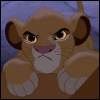









my special BROWNIE in life
- Posts: 451
- Joined: June 4th, 2016, 7:57 am
- Location: United States Florida
- Nickname(s): Rere
- Gender: Female
- Pride Points: 10
Re: New episode 'The Lost Gorillas'.
Panpardus wrote:(Side point: this is more than enough time in a single trip for major events to have gone down back at home, so the idea of Kion and co. just being gone on a mission during the events of the latter half of Simba's Pride is that much more tangible.)
I can not tell you enough how well stated that was


I protect Simba, his family, and his pride.
(My Avatar was made for Me by Thegeni99 Thank You so much)
.png)
(My Avatar was made for Me by Thegeni99 Thank You so much)
.png)
-
SimbasGuard
Guardian of the Pride Lands
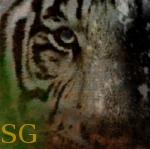














I protect Simba, his family, and his pride
- Posts: 3944
- Joined: March 25th, 2011, 9:54 pm
- Location: Pride Lands
- Nickname(s): Anyone may shorten my name however they want.
- Gender: Male
- Pride Points: 86
Re: New episode 'The Lost Gorillas'.
Of course, they could never allow it to happen- but I'm just saying if they did call one of the gorillas Harambe, even if it was literally only mentioned once like most incidental character names are- if this episode had aired a couple of months ago the internet would have Eaten. It. Up. Maybe not quite what 4chan did for MLP, but certainly close.
I wonder which species of gorilla they'll be?
I wonder which species of gorilla they'll be?
-
moonsugar33
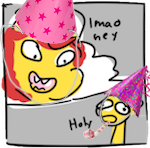









- Posts: 192
- Joined: May 13th, 2016, 9:30 am
- Location: Tasmania
- Gender: Female
- Pride Points: 9
Re: New episode 'The Lost Gorillas'.
The ep was likely written and recorded long before harambe became a meme.
Why do we fall? So that we can learn to pick ourselves back up again.
-
Elton John
I’m with you












Till the end of the line!
- Posts: 9691
- Joined: October 29th, 2014, 9:28 am
- Location: USA
- Gender: Male
- Pride Points: 240
Re: New episode 'The Lost Gorillas'.
Episode is up on WatchDisneyJunior.com and it doesn't seem to require a subscription. Sadly, I'm only seven minutes in and the episode is the worst one that I've seen so far. I hate the constant fart jokes, as I despise toilet humor, and these gorillas seem very out of place. They are apparently voiced by some sort of YouTube e-celebs that I've never heard of. I just don't feel like they did a good job. Maybe the second half will be better.
http://watchdisneyjunior.go.com/the-lio ... t-gorillas
https://twitter.com/danisnotonfire/stat ... 0148089868
http://watchdisneyjunior.go.com/the-lio ... t-gorillas
https://twitter.com/danisnotonfire/stat ... 0148089868
-
JackStover










- Posts: 139
- Joined: August 14th, 2015, 7:24 pm
- Pride Points: 17
Re: New episode 'The Lost Gorillas'.
Cripes, you weren't kidding.
Aside from some neat animation near the end, and Kion finally being referred to as a prince, the episode was terrible. Will not rewatch....ever.
Also did Zazu get a new voice actor? Somehow sounds worse than his tlk2 replacement.
Aside from some neat animation near the end, and Kion finally being referred to as a prince, the episode was terrible. Will not rewatch....ever.
Also did Zazu get a new voice actor? Somehow sounds worse than his tlk2 replacement.
Last edited by Elton John on December 2nd, 2016, 3:17 pm, edited 1 time in total.
Why do we fall? So that we can learn to pick ourselves back up again.
-
Elton John
I’m with you












Till the end of the line!
- Posts: 9691
- Joined: October 29th, 2014, 9:28 am
- Location: USA
- Gender: Male
- Pride Points: 240
Re: New episode 'The Lost Gorillas'.
Eh, this one was actually pretty enjoyable if you can shrug off the initial barrage of toilet humor. That said, it wasn't exactly an outstanding, or even good, episode quality-wise; there wasn't really a moral to this one (although they tried to shoehorn one in), it just felt more like a filler/excuse to make an obligatory Christmas-themed episode for American [and more generally Western] audiences. Christianity is very widespread across Africa, but nobody over there is really singing "Winter Wonderland" or "Jingle Bells" come December unless they watch American TV, and even then they have little reason to; snow isn't really a thing in the human-inhabited regions of the continent, and in the few places where there is overlap, the local people generally aren't Christian and the snow comes down during the June-August period, so...  The Halloween-ish episode was a lot more effective in shoehorning American cultural holiday traditions into an African context, and as I said when that one came out, Africans across the board don't celebrate Halloween, and very few people actually want to.
The Halloween-ish episode was a lot more effective in shoehorning American cultural holiday traditions into an African context, and as I said when that one came out, Africans across the board don't celebrate Halloween, and very few people actually want to.
Watching the Guard playing in the snow was actually pretty enjoyable - particularly Fuli - and the ending was genuinely funny (if illogical for obvious reasons), but I don't think the song was all that memorable; it was actually on the brink of being forgettable, truth be told. Once the catchphrase was dropped the first time, I could sense that there was going to be a song about it and I wasn't going to like it all that much. I don't even remember what it sounded like, and I just finished watching the episode barely twenty minutes ago.
The two gorilla princes felt like throwaway characters, and I'm not too big a fan of the casting choices made there.* I guess it worked insofar as them being goofballs, but that's about it. I did like their father though, in part because King Sokwe is now [only] the second character in-universe to have something of an African accent (even though his voice actor, John Rhys-Davis, is Welsh), but also because of the idea of the Pride Lands having to maintain diplomatic relations with foreign kingdoms. That the Pride Lands had to broker a peace treaty with Sokwe's kingdom makes me wonder if they've ever been in conflict with one another. (A nitpick; Bunga is the first character to actually say "gorilla", even though the Guard explicitly didn't know what gorillas are and neither of the gorilla characters introduced themselves as gorillas...)
*Side thought on casting decisions for this series: The proliferation of English and English-derived accents throughout The Lion Guard really has a soft colonialist vibe at this point, as if this is like British Africa or something. I also find it odd that the characters throughout the entire film franchise speak Swahili (or at least are implied to know it enough to use it in casual conversation; i.e. their greetings, catchphrases, and of course their names) but whenever someone introduces a new phrase they have to ask what the phrase itself means. I know it's for the non-Swahili-speaking audience's sake, but the lines could easily be written to have just asked about the speaker's intent while still ultimately translating the phrase itself through song or some other context clue. (Most of the phrases have ended up being elaborated on in songs anyway.) Now I'm really hoping that the 'live action' remake has an entirely African voice cast...
Maybe it's simply because we've never actually seen the landscape from various angles on Pride Rock, but am I the only one who found it a little jarring that there's a huge mountain range out of nowhere? (The same could be said regarding Mbali Fields, but at least that fits the savannah landscape.) Given the whole bit about the Rwenzori Mountain range and the flurry of activity over where this is located, it was actually a little disappointing to see that sort of thrown away and just be like Yeah, the mountain range is right over there.... I don't know, it just sort of smells of the Western tendency to just lump Africa into one relatively small geographic location, and it makes the story's universe itself seem a lot smaller. For what it's worth, at least we kind of know where the okapis and leopards - specifically Ajabu and Makucha, respectively - likely came from in-universe; the habitats are pretty similar, even though okapi at least don't really have a range that extends into the real-world Rwenzori area, at least not anymore. I actually thought Makucha would show up mid-episode to provide the story's danger element, but it was just a boar.
Ending my initial reactionary review on a positive note, I really like the colors of the last scene; very beautiful and a nice contrast to the dramatic fiery red sunsets we're used to seeing.
 The Halloween-ish episode was a lot more effective in shoehorning American cultural holiday traditions into an African context, and as I said when that one came out, Africans across the board don't celebrate Halloween, and very few people actually want to.
The Halloween-ish episode was a lot more effective in shoehorning American cultural holiday traditions into an African context, and as I said when that one came out, Africans across the board don't celebrate Halloween, and very few people actually want to. Watching the Guard playing in the snow was actually pretty enjoyable - particularly Fuli - and the ending was genuinely funny (if illogical for obvious reasons), but I don't think the song was all that memorable; it was actually on the brink of being forgettable, truth be told. Once the catchphrase was dropped the first time, I could sense that there was going to be a song about it and I wasn't going to like it all that much. I don't even remember what it sounded like, and I just finished watching the episode barely twenty minutes ago.
The two gorilla princes felt like throwaway characters, and I'm not too big a fan of the casting choices made there.* I guess it worked insofar as them being goofballs, but that's about it. I did like their father though, in part because King Sokwe is now [only] the second character in-universe to have something of an African accent (even though his voice actor, John Rhys-Davis, is Welsh), but also because of the idea of the Pride Lands having to maintain diplomatic relations with foreign kingdoms. That the Pride Lands had to broker a peace treaty with Sokwe's kingdom makes me wonder if they've ever been in conflict with one another. (A nitpick; Bunga is the first character to actually say "gorilla", even though the Guard explicitly didn't know what gorillas are and neither of the gorilla characters introduced themselves as gorillas...)
*Side thought on casting decisions for this series: The proliferation of English and English-derived accents throughout The Lion Guard really has a soft colonialist vibe at this point, as if this is like British Africa or something. I also find it odd that the characters throughout the entire film franchise speak Swahili (or at least are implied to know it enough to use it in casual conversation; i.e. their greetings, catchphrases, and of course their names) but whenever someone introduces a new phrase they have to ask what the phrase itself means. I know it's for the non-Swahili-speaking audience's sake, but the lines could easily be written to have just asked about the speaker's intent while still ultimately translating the phrase itself through song or some other context clue. (Most of the phrases have ended up being elaborated on in songs anyway.) Now I'm really hoping that the 'live action' remake has an entirely African voice cast...
Maybe it's simply because we've never actually seen the landscape from various angles on Pride Rock, but am I the only one who found it a little jarring that there's a huge mountain range out of nowhere? (The same could be said regarding Mbali Fields, but at least that fits the savannah landscape.) Given the whole bit about the Rwenzori Mountain range and the flurry of activity over where this is located, it was actually a little disappointing to see that sort of thrown away and just be like Yeah, the mountain range is right over there.... I don't know, it just sort of smells of the Western tendency to just lump Africa into one relatively small geographic location, and it makes the story's universe itself seem a lot smaller. For what it's worth, at least we kind of know where the okapis and leopards - specifically Ajabu and Makucha, respectively - likely came from in-universe; the habitats are pretty similar, even though okapi at least don't really have a range that extends into the real-world Rwenzori area, at least not anymore. I actually thought Makucha would show up mid-episode to provide the story's danger element, but it was just a boar.
Ending my initial reactionary review on a positive note, I really like the colors of the last scene; very beautiful and a nice contrast to the dramatic fiery red sunsets we're used to seeing.
Last edited by Panpardus on December 2nd, 2016, 10:16 pm, edited 3 times in total.
-
Panpardus
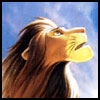









- Posts: 481
- Joined: September 28th, 2016, 6:29 pm
- Location: U.S.
- Gender: Male
- Pride Points: 51
Re: New episode 'The Lost Gorillas'.
This episode sounds awesome ! I can't wait for a clip on YouTude . I mean , can we at least get a song clip or a normal clip ?
-
Thebungaguard









- Posts: 19
- Joined: October 7th, 2016, 3:03 pm
- Nickname(s): Lady Scar-scar , Bungalicious , Fuli Girl
- Gender: Female
- Pride Points: 1
Re: New episode 'The Lost Gorillas'.
Just watched it through my phone on Disney Junior app, ehh episode I agree... But the playing in snow part was indeed fun. And I find amusing the end of it.
-
KionScar
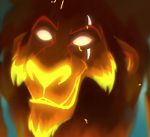









- Posts: 349
- Joined: May 12th, 2016, 5:34 am
- Gender: Female
- Pride Points: 10
Re: New episode 'The Lost Gorillas'.
Now that I think about it, the coloring scheme in the ep was really nice in a few parts so the ep wasn't a total waste.
Why do we fall? So that we can learn to pick ourselves back up again.
-
Elton John
I’m with you












Till the end of the line!
- Posts: 9691
- Joined: October 29th, 2014, 9:28 am
- Location: USA
- Gender: Male
- Pride Points: 240
Who is online
Users browsing this forum: No registered users and 349 guests
- The team • Delete all board cookies • All times are UTC [ DST ]
